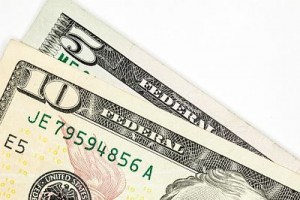 Normally when we get our tax refund, we end up spending most or all of it on something we’ve wanted for a long time but couldn’t afford. But over the past year, we’ve had some major unanticipated expenses. This year, should we use the refund to pay down our credit cards, or would it be better to build up our emergency fund?
Normally when we get our tax refund, we end up spending most or all of it on something we’ve wanted for a long time but couldn’t afford. But over the past year, we’ve had some major unanticipated expenses. This year, should we use the refund to pay down our credit cards, or would it be better to build up our emergency fund?
It may not feel like it, but paying down debt actually is a form of saving. The annual interest rate on credit cards, on average, ranges from 13 percent up to 23 percent. Think of it this way: If you put that refund in a savings account or invested it, could you earn 13 to 23 percent on it? Unlikely, or at least not without a lot of risk. By paying off high-interest debt, you’re saving in the long run.
If you have more than one credit card, most advisers recommend focusing on paying off the one with the highest interest rate first. Keep making minimum payments on any others, but put most or all of your refund where it will do you the most good.
If you have money left over or if you want to set aside at least some of your tax refund, building up your emergency fund is a good idea. Whether it’s just enough to pay for a major car repair or plenty to pay expenses through several months of unanticipated unemployment, an emergency fund will help you sleep better at night.
Either way you go, it appears you’ll have plenty of company this year. According to the 2016 National Retail Federation’s annual Tax Returns Survey, 49.2 percent of Americans who anticipate receiving a refund this year plan to save all or part of the refund. That’s the highest percentage since the survey began in 2007. Another 34.9 percent plan to use at least some of their refund to pay down debt. In all, 65.5 percent of respondents expected to get a tax refund this year.
To motivate people to save part of their refund, America Saves, a campaign managed by the nonprofit Consumer Federation of America, has partnered with the Doorways to Dreams Fund to offer 100 prizes of $100 — plus a $25,000 grand prize — to those who use tax Form 8888 to automatically save at least $50 of their refund. Organizers say providing a chance of an immediate reward motivates more people to save money. For details or to enter, see saveyourrefund.com.
Source: Family Fundamentals, Ohio State University Extension



